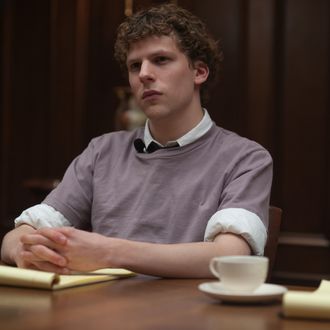
Letterboxd logged a milestone on September 29: Co-founders Matthew Buchanan and Karl von Randow have sold a majority stake in the film-logging social-media platform to Tiny, a holding company founded by Canadian investor Andrew Wilkinson. Buchanan assured users that he and von Randow will remain in their roles running the site and that “very little else will change” beyond having the support of the Wilkinsons’ firm, based out of Victoria, British Columbia. Buchanan wrote in a letter that the sale will secure “the platform’s future as an independently run company and part of the Tiny stable,” a phrase that makes Letterboxd sound like a miniature horse.
Buchanan and von Randow launched Letterboxd in 2011, and today, roughly 10 million people use the platform as a personal film diary, review platform, and place to discuss movies with other cinéastes. From its inception, Letterboxd has been a popular app with film buffs as well as professional critics, who will often share their initial rough takes on new releases and old favorites on their profiles. But its popularity exploded during the pandemic (Letterboxd had 1.8 million registered users in March 2020). The sale, Buchanan argues, will allow the platform’s operations to keep up with its growth. An anonymous source told the New York Times that Tiny’s 60 percent acquisition values Letterboxd at over $50 million. Back at the Tiny ranch, Letterboxd will be joining a roster of companies with names like HappyFunCorp (software), Yopify (e-commerce), and Girlboss (“a modern media company providing women all over the world with the tools and mindset to succeed”).
What changes will this really hold for the future of Letterboxd? We’ve seen beloved companies get acquired and destroyed by Big Capital before. But Tiny has millennial-branded graphics on its website explaining the ways they are different from a venture-capital or private-equity firm, if that comforts you at all. Other changes? The Times teased that the site may soon incorporate TV.


